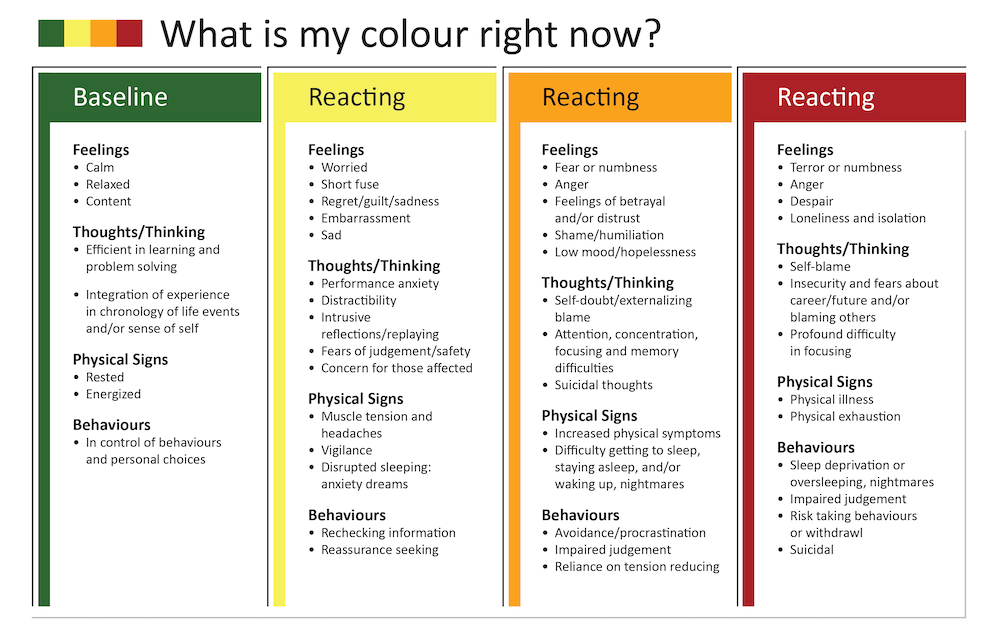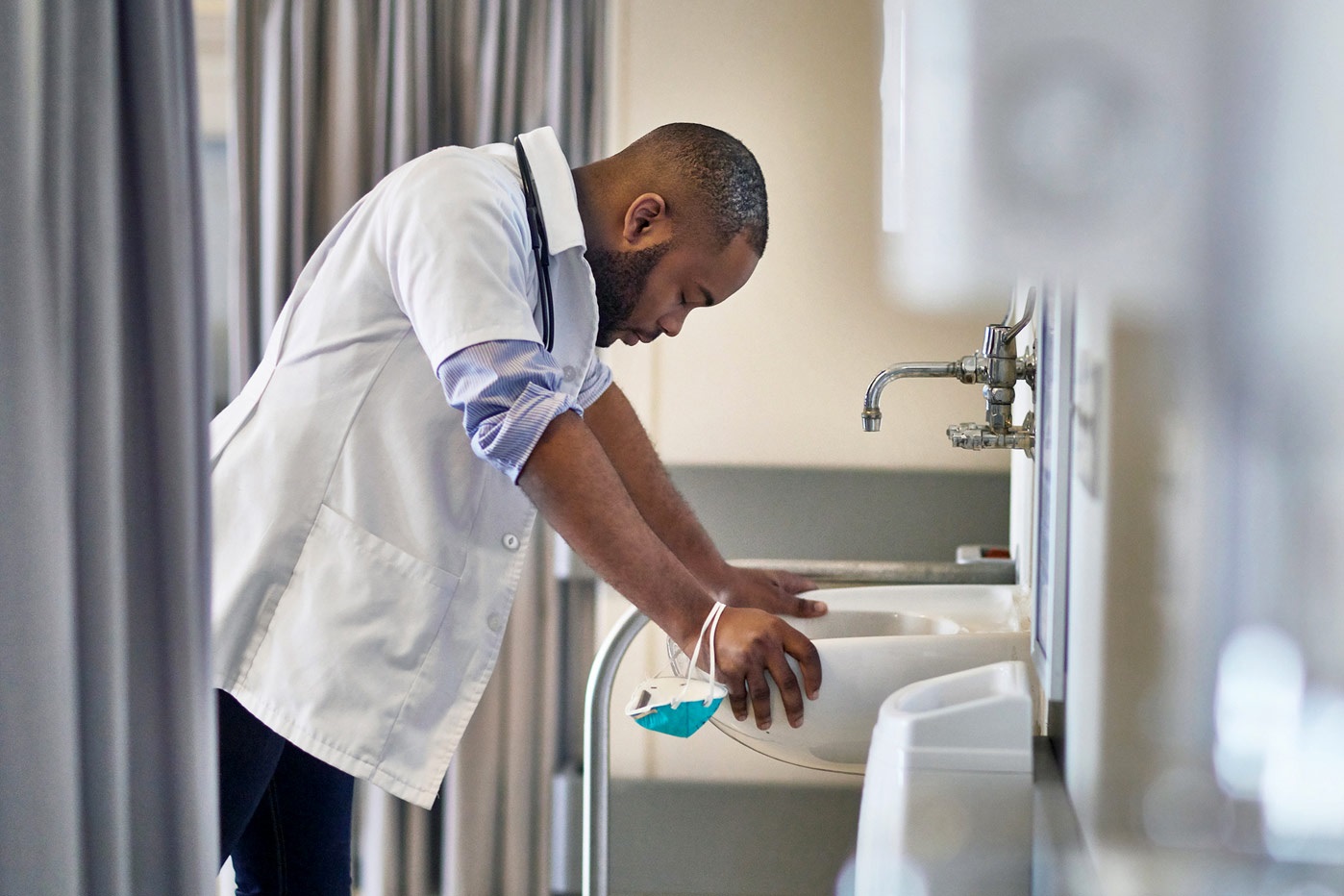As a physician, stress can have a direct impact on your health.
Understanding effective ways to deal with stress can help you stay healthier.
It also helps improve medical culture and produces better patient outcomes. The Canadian Medical Association’s Code of Ethics and Professionalism even makes it your fundamental responsibility to maintain and promote your own health and wellness.
Causes of stress
Stress can have many sources, including:
Physical conditions
- Fatigue, exhaustion and insomnia
- Pain or illness
- Use of alcohol or other substances
Psychology and emotions
- Anxiety and depression
- Feelings of helplessness or lack of control
- Lack of trust in patients
Personal circumstances
- Financial pressures
- Relationships
- Family needs and disruptions
School and work
- Schedules and workload
- Ethical dilemmas
- Complaints or lawsuits
Stress in the COVID-19 era
Managing uncertainty
The COVID-19 crisis has increased the level of stress experienced by virtually everyone working in health care. For physicians it can be particularly hard because the certainty they typically pursue in their work is simply not available — intensifying existing stressors and introducing new ones to the mix. Focusing on what you can control can help you feel less stressed.
Ask yourself these questions often:
- Am I doing everything I can to protect myself and others (maintaining physical distance, washing my hands, not touching my face, wearing PPE as needed)?
- Do I have an “isolation” plan set up just in case?
- Can I do one thing to help someone else?
- Where is my mood on this self-assessment tool?

- What is one small thing I can do to keep my spirits up, recharge or move toward the green zone?
Practical tips for dealing with the added stress of COVID-19 include:
1. Get training
Make sure you’re prepared to take the right actions in any given situation.
2. Focus
Slow the flow of information by:
- Limiting the time you spend on social media or monitoring the news
- Turning off your phone notifications
- Asking colleagues to bundle information on a platform outside of group emails so it can be available without being constant
Follow the best evidence by getting your news, policies and practices from reputable, official sources such as the Public Health Agency of Canada, or your local public health authority.
3. Pace yourself
Things are evolving rapidly, but there’s only so far you can stretch yourself physically and emotionally. As much as possible, try to control the pace of your life. Start your day with five minutes of planning and visualizing what you want to get done. Take breaks over the course of the day, including pausing for tactical breathing between tasks.
4. Breathe
In periods of high stress we experience a “fight or flight” response. Breathing can help you slow down and decrease your physiological arousal. Try this tactical 4/4 breathing technique from the Canadian Armed Forces to focus, gain control, manage stress and establish a sense of calm:
- Breathe in slowly for a count of four, visualizing each number as you count.
- Pause and hold your breath for a count of four.
- Exhale slowly for a count of four.
- Repeat four times.
5. Recover
Seek out “energy makers” — people or activities that give you strength and build resilience. Even a few minutes spent with children, reading, or doing something creative or spiritual can make an impact.
Recognize acts of kindness all around you, like medical students running errands for hospital staff or businesses donating or manufacturing PPE.
6. Help others
Compassion and empathy ease stress. Take time to ask colleagues how they’re doing, pay them a compliment or thank them. Let them know you’re there for them or that you understand what they’re going through.
Stress management tips
The Canadian Medical Protective Association’s Good Practices Guide offers these tips for coping with the stress of an adverse event:
- Take care of yourself
- Analyze the event objectively
- Respond professionally to make improvements
- Seek personal support
- Seek resources and professional help
If your stress becomes overwhelming on you start to feel burned out, contact your local physician health program.
Are you in distress? Get help now.

